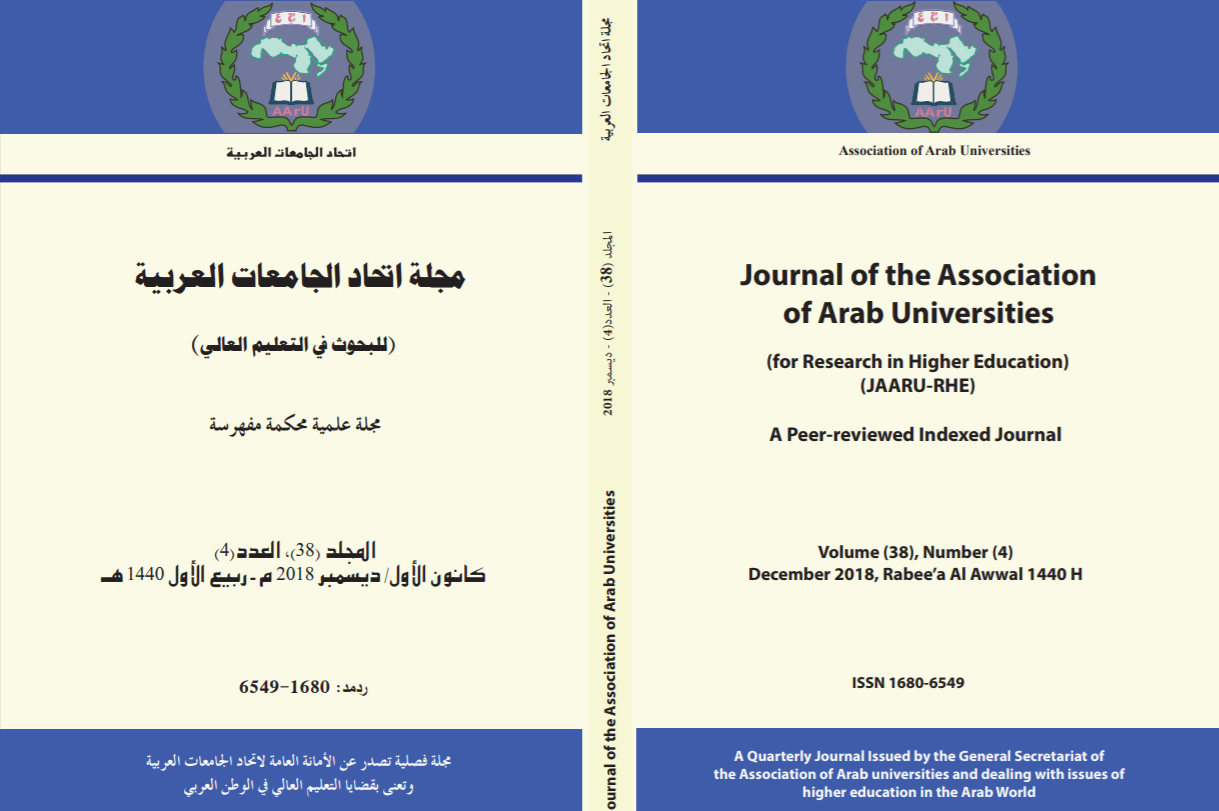Journal of the Association of Arab Universities for Research in Higher Education مجلة اتحاد الجامعات العربية للبحوث في التعليم العالي

Abstract
This study aimed to identify the ability of emotional intelligence and the Big Five personality traits in predicting the life satisfaction among students of educational sciences at Mutah University. The sample consisted of (220) male and female students. The study used three different scales to measure the emotional intelligence, the Big Five personality traits, and the life satisfaction. The results showed that there were no statistically significant differences, at the significance level (α≤ 0.05), in the overall and dimensional levels of emotional intelligence, the Big Five personality traits, and life satisfaction among educational sciences students attributed to their differences in gender and academic levels. Also, itshowed that the variables of emotional intelligence and the Big Five personality traits were significantly and positively correlated with the dependent construct, the life satisfaction, at both the dimensional and the overall levels. Moreover, the results indicated that there are some of the Big Five personality traits, namely extraversion, openness to experience and conscientiousness, as well as the dimensions of emotional intelligence, namely relationship Emotional knowledge, empathy Social communication have a significant impact on the life satisfaction. However, there was no statistically significant impact of neuroticism and agreeableness, as personality factors, as well as the Regulating emotions, a dimension of emotional intelligence, on the life satisfaction. Furthermore, the results showed the dimension of empathy was ranked first and can interpret (61.3%) of the variance in the life satisfaction; however, (65.4%) of the variance in the life satisfaction can be interpreted through involving the extraversion, and gradually increased to (68%), (68.9%), (72.3%) and (74%) when involving all the influential variables.
Recommended Citation
altarawneh, Abdullah and Altalahin, Fatima Mohammad Rashed
(2021)
"Emotional Intelligence and the Big Five personality traits for Predicting Life Satisfaction among Students of Educational Sciences at Mutah University,"
Journal of the Association of Arab Universities for Research in Higher Education مجلة اتحاد الجامعات العربية للبحوث في التعليم العالي: Vol. 41:
Iss.
2, Article 5.
Available at:
https://digitalcommons.aaru.edu.jo/jaaru_rhe/vol41/iss2/5

